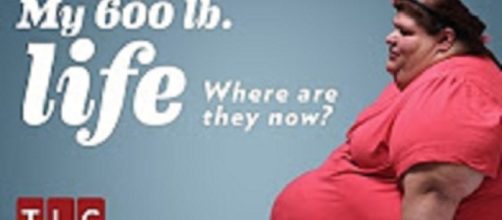Diana Bunch wasn't overweight as a kid, in fact, she was thin. But after sexual abuse and body-shaming, the 55-year-old ate herself to 620 pounds. Now a bariatric surgery patient on TLC's "My 600-lb Life" the Seattle woman hopes she can fix killer obesity. Can gastric bypass surgery help her find life-saving weight loss? Or will fat-shaming, PTSD, and a wicked comfort food addiction keep her bed-ridden and racing toward an early death?
Diana Bunch survived molestation, stonewalled by obesity
The "My 600-lb Life" reality television celebrity was underweight as a child.
Then she was sexually molested by several boys at age 11.The molestation left her with major shame and low self-esteem. Sexual abuse is a common experience shared by many patients of TLC's Dr. Younan Nowzaradan. The bariatric surgeon doesn't just treat obesity but the underlying root of it. At the core is usually some kind of PTSD (post-traumatic stress disorder) related abuse. Many, like Diana Bunch, cope with mistreatment by seeking comfort in food. They survive one trauma only to be railroaded by another.
Diana Bunch shows sick thinking of sex abuse
Like so many child sexual abuse sufferers, Diana internalized the shame. She felt guilty for someone else's behavior. Bunch believed, like kids do, that she was victimized because of something she had done.
Girls back then were taught that their "immodest" behavior, "inappropriate" dress, or some "flirtatious" act caused them to be targeted. Boys were just being boys when they assaulted girls. Sexual abuse was euphemized to "fondling" or "boyish curiosity" like that made it okay. This underscored girls' belief that they were the ones in the wrong for reporting the abuse or even disliking it. That shame turned many abuse survivors into addicts, who used drugs, alcohol, food, and even sex to quell the pain. The "My 600-lb Life" reality television show unpacks those mental health issues surrounding abuse, fat-shaming and obesity.
Diana Bunch proves danger of parental fat-shaming
So not only was Ms. Bunch self-shaming, but then, her mother body-shamed her and pressured her to lose weight.
With classic anorexic thinking, Diana felt fat even though she wasn't overweight. That's another danger of sex abuse -- the victim often feels ugly, fat, and dirty afterwards. Body-shaming set the stage for an eating disorder which manifested itself in overeating. But it could just as easily have been anorexia or bulimia. Can bariatric surgery help Diana lose weight and beat her junk food addiction before it's too late? Viewers will find out this season on "My 600-lb Life."

